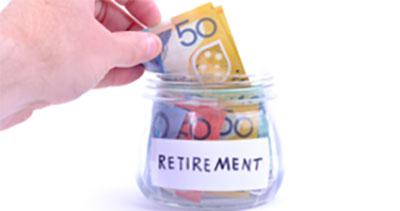Life on the West Island - Simply Super

08 March 2023
West Island political debate this week has been dominated by the remarkable admissions of lying from former coalition ministers at the Robodebt Royal Commission, concerns about cost of living pressures and the imminent election in the Premier State. But the Canberra Press Gallery has become obsessed with the alleged “broken promise” of the Albanese government’s proposal to make a modest change to the tax levels on incomes of wealthy retirees with more than $3 million in their superannuation accounts.
Writing in The Saturday Paper, Paul Bongiorno reported that Prime Minister Albanese thinks most Australians, like him, would be ‘quite surprised’ that there are 17 Australians who have more than $100 million in their accounts and one with $400 million-plus. Super is about people’s retirement incomes and is not intended as a tax shelter for the very wealthy, which is what it has become.
Public opinion polls show that the government is on a winner, with almost 80% of people supporting the change to tax incomes on superannuation accounts of over $3 million at the still-concessional rate of 30 cents in the dollar. As well, the government has pledged that the changes will not take effect until after the next federal election in 2025, meaning that voters will have the chance to reject the policy at the polls.
But the coalition opposition has cried foul and claimed that Albanese has broken a promise not to make any changes to superannuation. However, their shadow treasurer Angus Taylor proposed exactly this change when in government in 2016 he said it’s totally inappropriate that someone who has contributed millions and millions of dollars continues to get those 15 per cent concessions.
Economic journalist Michael Pascoe didn’t hold back when reacting to the hysterical reporting of the proposed changes:
Quite simply, there is more rubbish being tossed around about tax on super than you could find at a tip. Most of it is political – the Coalition’s dishonest, rather desperate and generally despicable attempt to make something out of a minor tweak, a small policy improvement, in fact. That, in turn, is magnified by the usual media suspects through a mixture of bias, ignorance and venal click baiting/gotcha grab journalism. As for the politics, shadow treasurer Angus Taylor added another ribbon to his chest of medals for stupidity with his line that the policy adjustment was ‘an attack on middle Australia.’ Middle Australia should be so lucky. Apparently Angus doesn’t get out much.
On the other hand, Anthony Albanese has the potential for the best pitch of his prime ministership if he’s prepared to adopt a line from Grattan Institute economic policy program senior associate, Joey Maloney: ‘If 30 per cent is good enough for someone making $50,000 a year working in a retail shop, then it’s good enough for a retiree with three million bucks in super.’
In or out of superannuation, the serious money isn’t made by wages and salaries. It is made by capital gains on investments. Gina Rinehart isn’t rich on the salary she pays herself, but on the increase in value of her companies – and there’s no tax at all on capital gains until they are realised, and then it is cheap. The Catch-22 here is that you have to have serious money to make serious money, but once you have serious money, it’s almost hard not to make more serious money.
Pascoe goes on to explain that due to generous tax treatment of capital gains on realised investments and negative gearing tax breaks, even under the proposed changes, most extremely rich retirees will pay much lower effective rates of tax on their super investment earnings of around 22 cents in the dollar. He points out that the Howard coalition government halved the rates of such taxes for spurious reasons:
The neo-liberal nonsense at the time was that halving the tax on investment profits would spark a golden age of productivity-enhancing investment in Australian business. Instead, it sparked a frenzy of real estate speculation and the rise of Landlord Australia, taking the percentage of us with investment properties from about 5 per cent to 15 per cent while governments abrogated their public housing responsibilities.
So a tradie working on a building site earning, say, $100,000 this year will be paying a marginal tax rate of 32.5 per cent. A casual labourer who picks up a few days and averages $900 a week also has a marginal rate of 32.5 per cent. Meanwhile, the speculator/investor individual selling the project after one-year-and-one-day will pay a maximum of 22.5 cents in the dollar no matter how big the profit – $1 million, $10 million, $100 million, doesn’t matter. It is not progressive taxation.
The super tax changes are likely to pass parliament this week. Paul Bongiorno points out that opposition leader Peter Dutton has painted himself into a corner by calling the reforms “class war” and promising to repeal them if he should become Prime Minister:
The political wedge (on Dutton) is exquisite. Albanese and Chalmers have ruled out any further changes in this area this term. They have no intention of giving any ammunition to Dutton and his cheer squad in the Murdoch media by hitting the other 99.5 per cent of people unaffected by this reform. That would leave the Liberals defending this super-sized tax lurk for some of the richest people in the country. This is inverse Robin Hood. The class war is not being waged against the rich but against the poor. Only the entitled could be impressed by it.
So, while ordinary West Islanders struggle to pay the rent or mortgage and worry about how to meet the rapidly rising cost of food, the opposition and its media supporters are obsessing about a minor change to taxes on the rich. Most citizens seem to feel that those reforms are simply super!